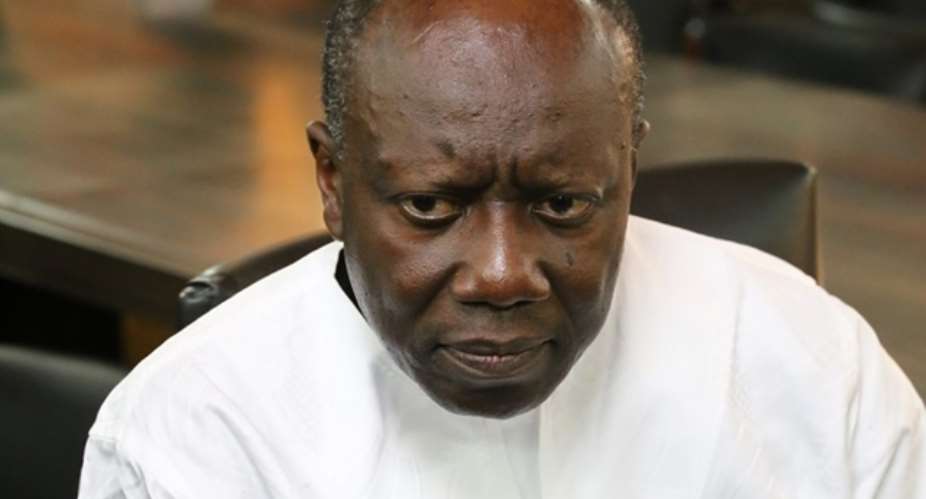Government may be targeting at least 19 percent interest rate on the energy bond to be issued to clear the debts in the energy sector.
Citi Business News understands this is relatively higher compared to the estimated 18 percent rate on the ten year domestic bond.
Sources close to the bond issue also indicate that the corporate nature of the energy bond has influenced the decision to peg anticipated interest rate above that of the current ten year domestic bond issued by the government of Ghana which is estimated at 18 percent.
Checks by Citi Business News indicate that for the 10 and 5 year domestic bonds issued in April this year, government will repay at an interest rate of 18.75 percent.
Also for the last three Eurobonds issued by Ghana, the country is expected to pay interest rates between 8 and 10.75 percent.
Factors to determine interest rate on bond
But this being the first time a bond of such nature is being issued, some factors that will influence the rate for the energy bond include; Ghana's program with the International Monetary Fund (IMF), macroeconomic indicators such as cedi depreciation and inflation as well as the tax policies on investment gains.
Economist and Lecturer at the University of Ghana Business School, Dr. Lord Mensah explained some determining factors for the interest rate.
“If you look at this bond, it is going to a specific sector and how the sector has performed over the years will determine the pricing. In addition, investors will be looking at the interest rate dynamics of the country; if you consider the NPP government, it has a tendency to bring down interest rates so if investors are going to commit for some number of years for a particular bond, definitely it must have to make projections for such interest rates.”
Meanwhile, a Research Fellow at the Institute of Fiscal Studies, Adu Owusu Sarkodie also indicated that, “Ghana is still part of the IMF program since 2015 and that gives the country some credibility. Also, inflation will be a factor to be considered and any creditor who is going to lend you money at an interest rate lower than the inflation rate is going to lose. Currently inflation is estimated at 12 percent. As a result, we are not expecting that the rate goes below that figure.”
Interest rates estimated between 18-20% ?
However on possible rates to be quoted by the investors, Dr. Lord Mensah, maintained that the investors are likely to quote an interest rate estimated at 20 percent to offset any possible losses.
“I don't foresee anything below the interest rates that the government has been enjoying over the years in terms of its bond issues. I am expecting the rate for this bond to go above that which is about 20 percent.”
On the contrary, Mr. Adu Owusu Sarkodie tells Citi Business News he is anticipating a strong negotiation by government's representatives to push the rate down marginally from the 18 percent region.
“The rate could be higher or lower than the estimated 18 percent depending on how investors perceive the strength of the economy. But I am hoping that the rate is lower than the 18 percent.”
Bond to be issued this week
The IMF and government are expected to reach an agreement on the mode of issuing the bond this week which should also clear the way for the issuance of the energy bond by close of this week.
An earlier statement on the bond indicated that the first of the tranches is expected to raise 6 billion cedis; the equivalent of 1.3 billion dollars.
Following the first road show in London last Thursday, October 19, a second road show for the energy bond is scheduled to take place in Accra, on Monday, October 23rd 2017.
–
By: Pius Amihere Eduku/citibusinessnews.com/Ghana





 Minority will expose the beneficial owners of SML, recover funds paid to company...
Minority will expose the beneficial owners of SML, recover funds paid to company...
 Prof. Opoku-Agyemang has ‘decapitated’ the NPP’s strategies; don’t take them ser...
Prof. Opoku-Agyemang has ‘decapitated’ the NPP’s strategies; don’t take them ser...
 Abubakar Tahiru: Ghanaian environmental activist sets world record by hugging 1,...
Abubakar Tahiru: Ghanaian environmental activist sets world record by hugging 1,...
 Prof. Naana Opoku-Agyemang will serve you with dignity, courage, and integrity a...
Prof. Naana Opoku-Agyemang will serve you with dignity, courage, and integrity a...
 Rectify salary anomalies to reduce tension and possible strike action in public ...
Rectify salary anomalies to reduce tension and possible strike action in public ...
 Stop all projects and fix ‘dumsor’ — Professor Charles Marfo to Akufo-Addo
Stop all projects and fix ‘dumsor’ — Professor Charles Marfo to Akufo-Addo
 Blue and white painted schools will attract dirt shortly – Kofi Asare
Blue and white painted schools will attract dirt shortly – Kofi Asare
 I endorse cost-sharing for free SHS, we should prioritise to know who can pay - ...
I endorse cost-sharing for free SHS, we should prioritise to know who can pay - ...
 See the four arsonists who petrol-bombed Labone-based CMG
See the four arsonists who petrol-bombed Labone-based CMG
 Mahama coming back because Akufo-Addo has failed, he hasn't performed more than ...
Mahama coming back because Akufo-Addo has failed, he hasn't performed more than ...
